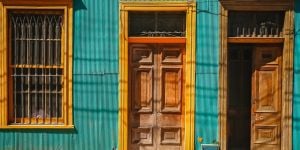Each country has its own legislation about identification and this is not different in Chile. One interesting thing about Chile is that they have everything integrated under a single National Identification Number, known as RUT or RUN. RUT stands for Rol Único Tributario and RUN stands for Rol Único Nacional. Chilean usually call their national identification number RUT. RUT is also used for juristic persons, meaning companies have RUT such as individuals.
The RUN number is as sequential number for natural born chilean and for foreign people with temporary or permanent visa. That number is used for everything: from membership cards in stores, groceries, airline companies, to passport, bank account and taxes. But why am I telling all this? Because before even thinking of applying for a chilean driver's license, you need to have a RUN, which will allow you to obtain everything else as a resident in the country.
I am not going to talk about how you can get your RUN or RUT. I will save this for another article if you need some information on that.
Let's start from the point where you are already a legal resident in Chile, with your temporary or permanent visa and RUN in good standing. What comes next as far as legally driving in Chile? You MUST have a chilean drivers license. That means you CANNOT any more drive around using your Home or International Driver's License. Your original, let's say, Brazilian or Internation Driver's License is good only if you are in Chile on Tourist Status. You must have that very clear. Also, this is the one part I love about Chile, specially considering I come from Brazil, is that you cannot/should not offer bribery to a police officer, or you will end up in jail. So if you get pulled over, do not even think of bribing him/her. You will have to respond for your acts, so, in the case of driving without a driver's license, be prepared for sanctions.
So, if you want/need to apply to your Chilean Driver's License, here some hints on the steps you must follow:
1. Be 18 years old or older
2. RUN/RUT in good standing
3. Obtain your graduation original certificates: graduation, pos graduation and so on. Chilean Government only grant driver's licenses for individuals with basic studies completed
4. Apply and give 3 exams: theory written, psicological and practical
The most complex item, after completing 18 years old (that is something you cannot fake for sure), and having the RUN/RUT, is the graduation certificates. If you are an expatriate, that might probably mean that you have your studies completed in your home country, not Chile. If that is the case, you will need your original certificates (diplomes) recognized and certified by both your country and Chilean consulate in your home country, after considering using them in Chile. If you are Brazilian, for instance, you need to send your graduation diplomes first to the Ministério da Educação and Ministério de Relações Exteriores, so they can accredit them. Prior to doing that, make sure your diplomes have at least one signature legalized from your university or institution. If there is no signature legalized, you will not have your diplome accredited. After you obtain your that accreditation, you need to take your diplome to any Chilean consulate (in your home country) to obtain their accreditation. Upon that, you need to take your diplomes to Ministerio Chileno de Relaciones Exteriores for the final accreditation. Only then you will be able to start your driver's license enrollment process.
Finally, when you have all the documentation, the Chilean Driver's License can be requested at the local neighborhood office of the Municipalidad where you live. Not to mention you need to study the laws on driving in Chile and be able to drive (obvious, but I am better mention that).
Remember that the sooner you start the process, the better. You do not want to get pulled over without a driver's license.
And also remember the most complex process is accrediting your graduation papers.
Suerte!
Everaldo
We do our best to provide accurate and up to date information. However, if you have noticed any inaccuracies in this article, please let us know in the comments section below.












Comments
8